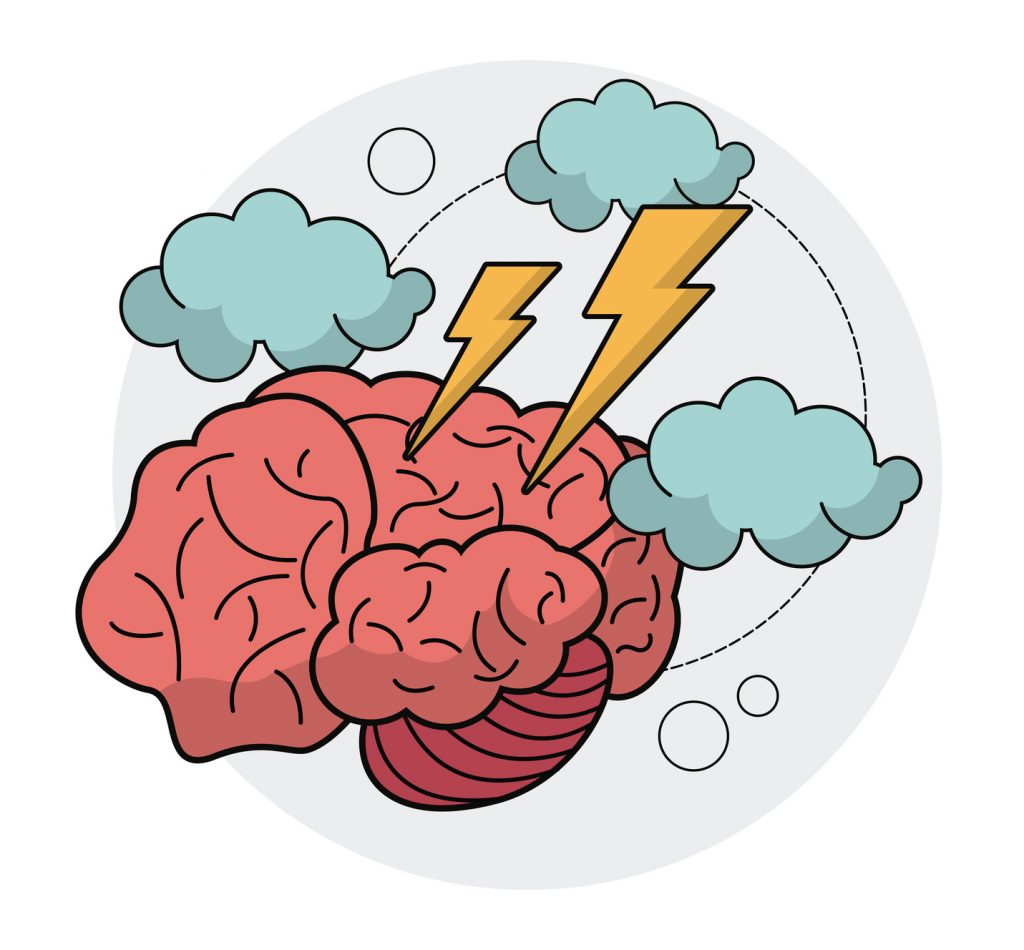
It’s not that you’re unlikable.
Or unfunny.
Or ungood-looking.
The reason you’re socially repulsive is simply because you are deficient in Vitamin B1 (or thiamine). Because when you’re deficient in B vitamins, your energy is off, your cognition is off, your general swag is completely M.I.A.
Which is why Sulbutiamine, a nootropic drug of two synthetically bonded B1 vitamins, has been making rounds in social geek circles, given its restorative benefits on mood, energy, & cognition — i.e. major factors of interesting conversation.
But are all of its benefits “restorative”? Or does sulbutiamine possess cognitive enhancing abilities even under normal circumstances?
Let’s find out.
Page Contents
How Sulbutiamine Is Supposed to Work
Known by many names (Ereon, Arcalion, Bisibuthiamine, & Youvitan), Sulbutiamine is a synthetic nootropic drug compound comprised of two natural molecules that, maybe you’ve heard of them, are called Vitamin B1 & Vitamin B1.
That’s right:
Sulbutiamine is two B1 vitamins (thiamine) bonded together to form a single nootropic B1+B1 compound.
And. It’s. AWESOME.

Originally developed in Japan to treat vitamin B1 deficiency, a known cause of asthenia (abnormal physical weakness or lack of energy), sulbutiamine has its origins in the early 1970s, when it was discovered to effectively cross the blood-brain barrier, metabolizing into singular vitamin B1’s and thiamine triphosphate (TTP) — regulatory compounds involved in synaptic transmission.
While further research into the compound is lacking, sulbutiamine’s anti-asthenic qualities have earned the drug a positive reputation as a reliable brain energizing cognitive enhancer, a nootropic status illustrated by the following theorized biomechanisms:
Regulation of Dopaminergic Transmissions
I’m relying on rat research for identifying this potential biomechanism: The increase of D1 dopaminergic binding sites in the prefontal & cingulate cortex, modulating the brain’s usage of dopamine in these regions. The study concluded that both dopaminergic & glutaminergic cortical transmissions may have been modulated by acute sulbutiamine administration, potentially influencing dopamine & glutamate neurotransmitter levels.
Mediation of Cholinergic Activity
I’ll further explain the benefits of this biomechanism below (SEE: mice study), particularly as they relate to long-term memory formation. Sulbutiamine is often pinned down as a memory enhancer, a role evidenced by its potential bioaction on increasing hippocampal sodium-dependent high affinity choline uptake. This is important to both memory consolidation & general cognition given choline’s precursor status to neurotransmitter acetylcholine & membrane lipid phosphatidylcholine. More on choline nootropics.
Neuroprotection Against Oxygen-Glucose Deprivation
In an in-vitro model of ischemia (inadequate blood supply to an organ, in this case: the brain), sulbutiamine was suggested to increase hippocampal neuron viability & cell-to-cell communication during excitatory synaptic transmissions in a concentration-dependent manner. Evidence of neuroprotection against oxygen-glucose deprived neurons in the hippocampus implicates sulbutiamine as a potential therapeutic agent against brain ischemia.
Sulbutiamine Benefits

Sulbutiamine is a nootropic through-and-through. While I’ve heard of some users supplementing sulbutiamine in a pre-workout fashion, this drug is practically unanimously viewed as a nootropic. At the least it’s sold as such under the general claims of it benefiting: memory, focus, mental energy, mood, motivation, & various other cognitive benefits.
However, if that seems like a suspiciously long & suspiciously diverse list of benefits, then that makes two of us: Sulbutiamine remains under-researched & thus poorly understood.
Clinically, sulbutiamine may help with some symptoms of depression & chronic fatigue, potentially improving memory on a biochemical level. Yet, many of sulbutiamine’s anecdotally reported benefits (motivation, anti-anxiety, anti-stress) may be attributed to the drug’s reliable lifts on mood & energy. It is, after all, only a bound pair of B1 vitamins — healthy cognitive stimulating B vitamins — but B vitamins nonetheless.
Researchers Have Suggested Sulbutiamine Might:
Improve long term memory formation (mice study)
Mice memory is not Man memory (I’m speaking generally, not genderly), but this mice study still demonstrates promising memory & cognitive enhancing potential on behalf of sulbutiamine’s potential cholinergic mediatory role. To evaluate sulbutiamine’s effects on memory formation, 300 mg/kg daily doses of sulbutiamine were administered for 10 days to mice. As compared to a control group, the sulbutiamine fed mice showed significantly improved cognitive performance on appetitive operant level conditioning tests, leading to the conclusion that “sulbutiamine improves memory formation and that this behavioral effect could be mediated by an increase in hippocampal cholinergic activity.”
Ameliorate psycho-behavioral symptoms of major depressive disorder
In this 8-week, randomized, double-blind, placebo-controlled trial, the efficacy & safety of sulbutiamine on psycho-behavioral inhibition in major depressive disorder were evaluated & compared against placebo & clomipramine, a tricyclic antidepressant. The results of the study found the sulbutiamine group to be significantly less impaired on various facets (affective, cognitive, emotional, behavioral) with zero incidents of side effect or “inappropriate behavior” (e.g. suicide ideation, mania). The study’s conclusion: “Sulbutiamine has no antidepressive effect but it can hasten the resorption of psycho-behavioural inhibition occurring during major depressive disorder and thereby facilitate the rehabilitation of patients in their social, professional and family life functioning.”
Alleviate chronic post-infectious fatigue (CPIF)
Chronic post-infectious fatigue (CPIF) is essentially fatigue that persists after an apparent infection. By evaluating sulbutiamine’s effects on CPIF, the researchers of this study sought to obtain a preliminary big picture look on general chronic fatigue from a therapeutic standpoint. Within a large sample of 326 CPIF patients (315 by the study’s end), 3 groups were administered a treatment of 400 mg sulbutiamine daily, 600 mg sulbutiamine daily, or placebo for 28 days. The results showed less fatigue in the 600 mg group of women by the 7th day, however the figures were diverse & inconsistent up to the 28th day. While the benefits of sulbutiamine on CPIF were left inconclusive, the researchers indicated that “a high level general-practice study of fatigue is feasible using specific tools. Whether the effect observed after 1 week in women represents a true finding needs additional research.”
Assist acetylcholinesterase inhibitors in improving attention & episodic memory
Acetylcholinesterase inhibitors (e.g. Huperzine A) are commonly prescribed for neurodegenerative disorders in certain countries, however some patients do not always respond to such treatments. This study investigated the effects of sulbutiamine in association with an anticholinesterasic drug (donepezil) on cognitive functions (episodic memory, working memory, executive function, attention) affected by neurodegeneration. Compared to the placebo + donepezil group, the sulbutiamine + donepezil group demonstrated improvements in episodice memory, while attention improved in both groups. The conclusion: “sulbutiamine can be an adjuvant to treatment in early stage and moderate AD by anticholinesterasic drugs.”
How to Take Sulbutiamine
- Commercial sulbutiamine supplements typically supply 200 to 500 mg doses.
- Powder sulbutiamine is often preferred for adjusting intake.
- Successful human trials observed benefits at 400 to 600 mg/day.
Is Sulbutiamine Safe?
Current clinical trials have noted no major side effects with sulbutiamine supplementation. However, bear in mind that research remains generally lacking with regards to long-term sulbutiamine usage. Anecdotally, mild adverse effects have been reported, including: anxiety, insomnia, nausea, euphoric mania, & skin rashes. Reports of quick tolerance build-up to sulbutiamine are common, provoking concern with regards to sulbutiamine’s addiction potential.
My Experience with Sulbutiamine
Pleasure. Euphoria. Confidence.
Anti-anxiety? Surrre, kind of…
In my experience, sulbutiamine has been great for stimulating pep-in-your-step mood & energy, but not necessarily for any long-term reductions in stress & anxiety that certain users on reddit purport achieving. (Although, I’m not doubting their experience).

Professionally, I’ve supplemented sulbutiamine a few times, benefiting by the additional happy-happy-joy-joy motivation to get through my day.
Recreationally, I’ve supplemented sulbutiamine more than a few times as I tend to enjoy its cognitive effects more whilst socializing, gallivanting, rumspringaing, etc.
On that note, I can say that the drug has helped with social anxiety, as I’m generally more loquacious & free-to-speak while experiencing sulbutiamine’s euphoric mood boosts (for these reasons I’ve included it in my list of anti-anxiety nootropics). However, I feel this operates on a separate mechanical level than that of legitimate anxiety disorders.
At the least, I don’t view sulbutiamine as a legitimate anxiety & stress therapeutic, namely due to the brain’s quick tolerance build up against the drug. Instead, I supplement sulbutiamine on an as-needed/as-wanted basis, which seems to be a common regimen among casual sulbutiamine users.
Is Sulbutiamine a Good Nootropic?
For awhile, sulbutiamine was the go-to nootropic choice.
Particularly for the Limitless wannabes who focused too much on the scene in which Bradley Cooper sways everyone with his synthetically intelligent party conversation.
In recent months, the hype on sulbutiamine has died down, possibly due to the revelation of better nootropics. (Or perhaps everyone’s tolerance to the drug is too damn high.) Although, some manufactured nootropic stacks still include the drug in their formulas (SEE: OptiMind).
For quick, temporary boosts on mood & cognition, sulbutiamine is a good nootropic.
On that note, I wouldn’t recommend it as a valid long-term cognitive enhancing option as you’ll likely burn out on this one fast. But it’s definitely a worthy nootropic to keep on hand for those special what-the-heck moments.
Overall Sulbutiamine Nootropic Power Rating
[yasr_multiset setid=0]
